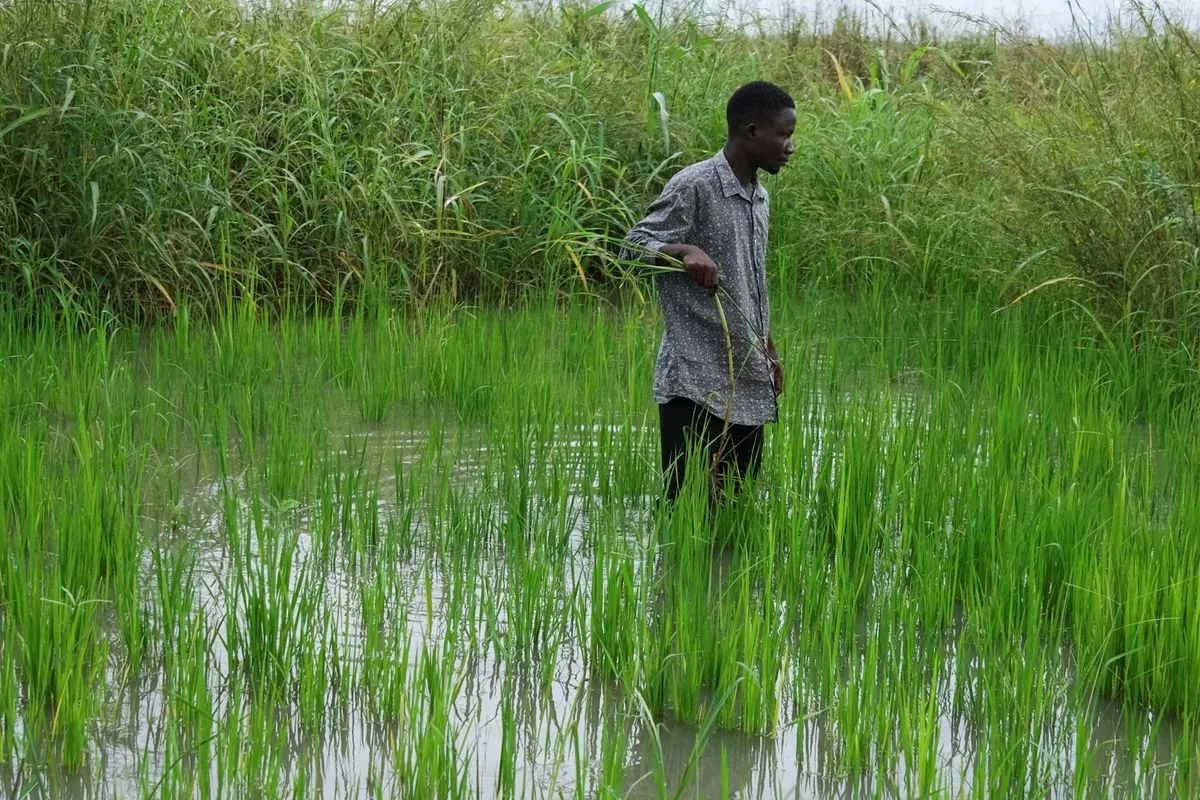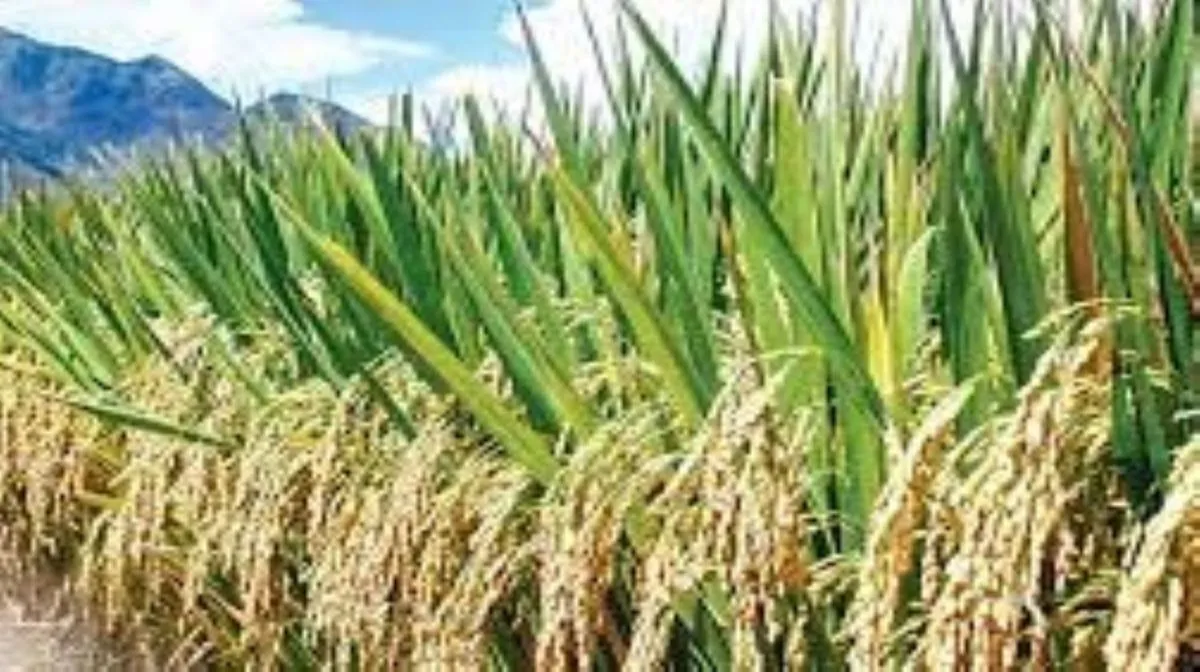Rising Waters Threaten Nigeria's Food Basket: Benue Farmers on Alert
Benue state farmers face potential crop loss as water levels rise, echoing devastating 2022 floods. The situation could impact Nigeria's food security and exacerbate economic challenges.

In Benue state, Nigeria's renowned "Food Basket of the Nation," farmers are on high alert as water levels in rice paddies and the Benue River continue to rise. This alarming situation, reminiscent of the catastrophic floods two years ago, threatens to disrupt agricultural production and exacerbate Nigeria's ongoing economic challenges.
Enoch Fater, a local farmer, expresses deep concern as he surveys his waterlogged rice field. "The farm is almost submerged again," he notes, wading through knee-high water. Fater had anticipated earning approximately 800,000 naira from his one-hectare plot this year, but now faces the prospect of losing his entire crop.
The current threat stems from recent heavy rainfall in West and Central Africa, compounded by Cameroon's decision to release water from the Lagdo Dam. This dam, completed in 1982, has historically played a significant role in regional flooding events. The Benue River, a major tributary of the Niger River stretching approximately 1,400 km, is particularly susceptible to overflow under these conditions.

Benue State, created in 1976 and named after its iconic river, is crucial to Nigeria's agricultural sector. The state is a primary producer of staples such as rice, cassava, and yams. Notably, Nigeria holds the title of world's largest yam producer. With agriculture contributing about 24% to Nigeria's GDP, any disruption to Benue's farming activities could have far-reaching consequences.
The potential loss of crops in Benue is particularly concerning given Nigeria's current economic climate. The country, home to over 200 million people, has grappled with double-digit inflation since 2016. A significant reduction in food production could drive prices even higher, further straining household budgets.
Aondonese Nyor, a 24-year-old small trader, exemplifies the human impact of this looming crisis. "I'm arranging my belongings to evacuate," she shares, recalling her displacement during the 2022 floods. "If the water comes, I have nowhere to go. That's my fear."
Climate change experts warn that such flooding events may become more frequent and severe in West Africa. This trend poses a significant challenge to Nigeria's food security and economic stability.
Despite the grim outlook, farmers like Fater remain resilient. "I'll stay until the flood reaches a critical level," he asserts, while hoping for government intervention to provide shelter for those at risk of displacement.
As Nigeria faces this potential crisis, the situation in Benue underscores the urgent need for improved flood management strategies and support for vulnerable agricultural communities. The coming weeks will be crucial in determining the extent of the impact on Nigeria's food production and broader economy.
"Even the little (crop) I did now, I am about to losing it because of the water again."


































